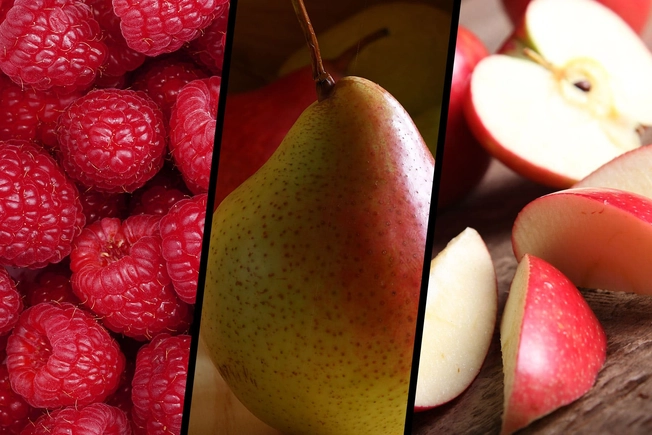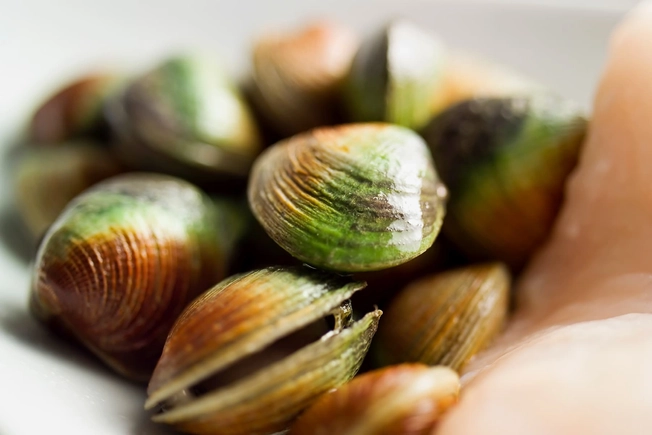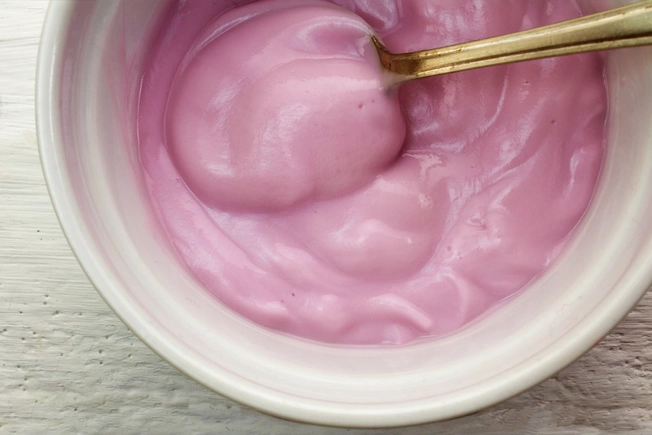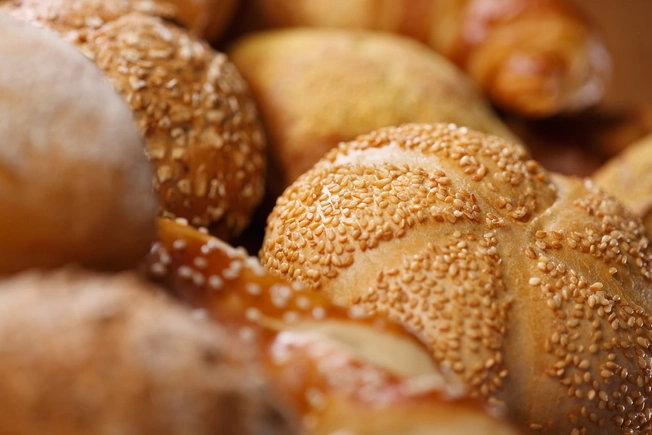- Overview
- Symptoms
- Causes & Risks
- Tests & Diagnosis
- Treatment
- Relapse
- Complications
- Living With
- Caregiving
- View Full Guide
What to Eat When You Have Schizophrenia


Your Diet Matters
Those with schizophrenia, a chronic mental illness, often have unhealthy diets. Bad eating habits often lead to other health problems that can put these people at high risk for things like cardiovascular disease and diabetes. Research suggests that some changes in diet can really help. Here’s a look at some foods to consider, and a couple to avoid.

Eat More: Fruits
Many studies suggest that people with schizophrenia often don’t get enough fiber. Fruits -- raspberries, pears, apples, and others -- are some of the best sources of it. Fiber helps lower “bad” cholesterol and aids in digestion. Fiber-rich diets may lower your chance of some health problems that often are associated with schizophrenia, like heart disease, diabetes, and obesity. Fruits have healthy vitamins, too.

Eat More: Vegetables
Low in fat and calories, packed with fiber and important vitamins, and without any heart-heavy cholesterol, vegetables are another staple missing in the diet of many people who have schizophrenia. Potassium, a key nutrient that may help keep your blood sugar in check, is in veggies like lima beans, kidney beans, and sweet potatoes.

Eat More: Salmon and Other Fatty Fish
Omega-3 fatty acids can’t be made by the body. You need to get them through food. Why do you need them? A growing amount of research says that omega-3 fatty acids can prevent and ease the symptoms of schizophrenia and slow the disease’s progress. Salmon and mackerel are great sources of those acids. Don’t like fish? Ask your doctor about omega-3 supplements.

Eat More: Chicken Marinara
Research suggests the vitamin niacin can slow the advance of schizophrenia and help ease its symptoms. One rich source of niacin is chicken; another is marinara sauce.

Eat More: Oysters and Crab
Experts say there may be a relationship between low levels of zinc and schizophrenia. Oysters, crab, and lobster are high in this nutrient. You can also find it in beef and in fortified cereals. It’s available in supplements, too, but talk to your doctor before you take any of those.

Eat More: Clams
A number of reports have shown low levels of vitamin B12 in those with psychosis -- a set of mental disorders that schizophrenia is one of. Other research says a bit more B12 can ease symptoms.
Clams are a big source of B12. It’s found in liver, trout, and in some breads, too.
Supplements may help, but check with your doctor first.

Eat More: Spinach
The king of leafy greens, spinach is high in folate. (It’s called folic acid when it’s used in supplements or to fortify foods.) Folate can help ease symptoms of schizophrenia. Along with spinach, you can find it in black-eyed peas, asparagus, and beef liver.

Eat More: Cod Liver Oil
Studies on vitamin D’s effect on schizophrenia are mixed. Still, more Vitamin D -- produced mainly from exposure to the sun, but available naturally in cod liver oil, swordfish, and salmon -- might help some folks who have the disorder.

Eat More: Nondairy Yogurt
The gut microbiome -- that swamp of bacteria in your intestines -- gets a lot of attention. Some research has linked bad gut bacteria to schizophrenia. Getting more prebiotics, which are found naturally in fruits and veggies, may help. More “live culture” probiotics -- which are in yogurt, kimchi, and sauerkraut -- might help, too. Try to avoid diary/whey products that contain casein antibodies.

A No-No: Bread
Some experts believe that sensitivity to wheat can be a factor in mental health conditions like schizophrenia. One study suggests some people with schizophrenia had their condition improve when they switched to a gluten-free diet. Gluten is a protein found in wheat and other grains. Talk with your doctor about it.

No Good: Refined Sugars
It’s been well established that most people with schizophrenia are bad eaters and that their odds of getting diabetes are higher. A diet that carries a low glycemic load -- a measure of sugar in your blood -- might ease the symptoms of schizophrenia. Cutting out refined sugars, found in things like sweetened beverages, candy, and cake, is a good place to start.
IMAGES PROVIDED BY:
1) Getty
2) Getty
3) Getty
4) Getty
5) Getty
6) Getty
7) Getty
8) Getty
9) Getty
10) Getty
11) Getty
12) Getty
SOURCES:
Pharmacy and Therapeutics: “Schizophrenia: overview and treatment options.”
Journal of Psychiatric Research: “The dietary pattern of patients with schizophrenia: a systematic review.”
Schizophrenia Research and Treatment: “Metabolic Syndrome among Schizophrenic Patients: A Comparative Cross-Sectional Study in the Middle Belt of Ghana.”
Mayo Clinic: “Metabolic syndrome.”
Neuropsychobiology: “Diet and Psychosis: A Scoping Review.”
Dipasquale, S. Journal of Psychiatric Research, November 2013.
Mayo Clinic: “Nutrition and healthy eating.”
U.S. Food & Drug Administration: “Nutrition Facts: Dietary Fiber.”
U.S. Department of Agriculture: Choosemyplate.gov: “Why is it important to eat fruit?” “Why is it important to eat vegetables?” “Added Sugars.”
Harvard T.H. Chan School of Public Health: “Omega-3 Fatty Acids: An Essential Contribution.”
La Clinica Therapeutica: “Omega-3 fatty acids and schizophrenia: evidences and recommendations.”
U.S. Department of Health & Human Services, National Institutes of Health: “Omega-3 Fatty Acids.”
European Review for Medical and Pharmacological Sciences: “Niacin-respondent subset of schizophrenia -- a therapeutic review.”
U.S. Department of Health and Human Services, National Institutes of Health: “Niacin,” “Zinc,” “Dietary Supplements: What You Need to Know,” “Vitamin B12”, “Folate”, “Vitamin D.”
General Hospital Psychiatry: “Zinc in schizophrenia: A meta-analysis.”
Mayo Clinic: “Zinc.”
National Collaborating Centre for Mental Health (UK). Psychosis and Schizophrenia in Adults: Treatment and Management: Updated Edition, 2014.
CNS Drugs: “Vitamin supplementation in the treatment of schizophrenia.”
University of Washington Medicine Memory & Brain Wellness Center: “The Gut Microbiome and Brain Health.”
Journal of Medicinal Food: “The Gut Microbiome and the Brain.”
Academy of Nutrition and Dietetics, eatright.org: “Prebiotics and Probiotics: Creating a Healthier You.”
Frontiers in Human Neuroscience: “Bread and Other Edible Agents of Mental Disease.”
Celiac Disease Foundation: “What is Gluten?”
International Journal of Endocrinology: “An Overview of Diabetes Management in Schizophrenia Patients: Office Based Strategies for Primary Care Practitioners and Endocrinologists.”
Harvard Health Publishing, Harvard Medical School: “The lowdown on glycemic index and glycemic load.”
British Journal of Psychiatry: “International variations in the outcome of schizophrenia and the prevalence of depression in relation to national dietary practices: an ecological analysis.”